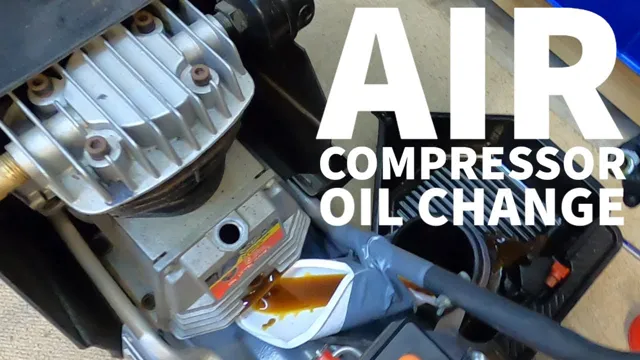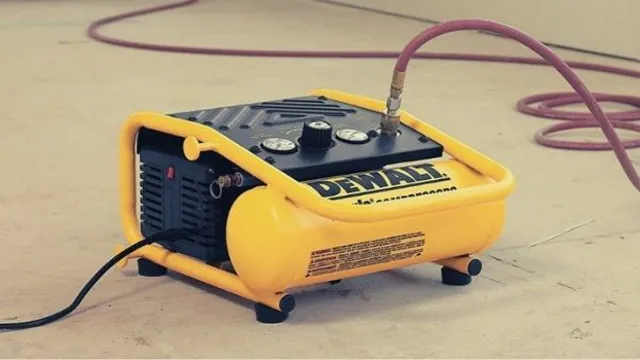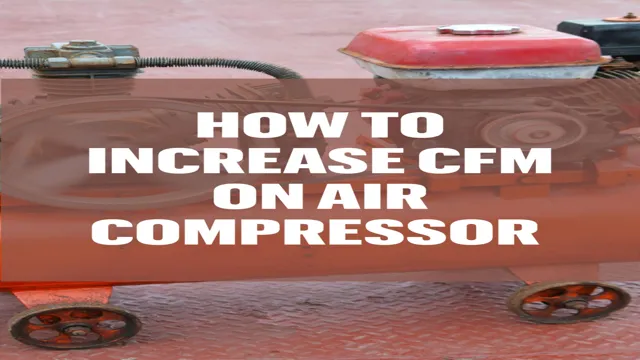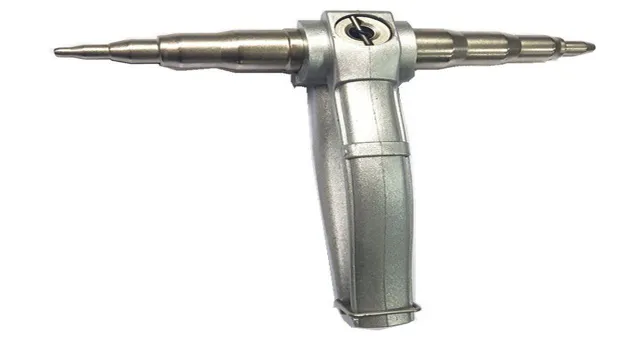
Have you ever wondered what type of material is best for air compressor lines? Using copper pipe is one solution that has been gaining popularity among DIY enthusiasts and professionals alike. Copper pipes have unique properties that make them ideal for use in air compressor systems, including their ability to withstand high pressure and resist corrosion. Unlike other materials commonly used for air compressor piping, such as PVC and stainless steel, copper is relatively easy to install and requires minimal maintenance.
Additionally, copper pipes are affordable and readily available, making them an attractive option for those on a budget. If you’re in the market for air compressor piping, consider using copper pipes for your next project. Not only are they durable and cost-effective, but they also provide excellent air flow and reliable performance.
With the right tools and a bit of know-how, you can install your own copper piping and enjoy all the benefits it has to offer.
Overview
If you’re wondering whether you can use copper pipe for your air compressor, the answer is yes and no. Copper is a great material for carrying compressed air, but only if it’s used in the proper way. For example, you should only use seamless copper tubing that’s been specifically designed for high-pressure applications.
Also, the size of the copper tubing must be larger than the compressor’s outlet port to reduce pressure drop and minimize heat buildup. It’s important to note that copper is a good conductor of heat, which can cause the compressed air to get too hot and reduce system performance. To avoid this, you can insulate the copper tubing or use a heat exchanger to cool the compressed air before it enters your tools or equipment.
Overall, copper pipe can be a viable option for your air compressor system, but you must use it correctly to avoid potential issues.
Understanding Compressed Air Systems
Compressed air systems are widely used across various industries, including manufacturing, construction, and automotive. These systems are designed to generate powerful bursts of compressed air which can be utilized for different applications, such as powering tools, controlling robotic machinery and even cooling equipment. But if you’re not familiar with compressed air systems, the concept might be a bit confusing.
Essentially, these systems work by compressing air by reducing its volume and increasing its pressure. The air is stored in tanks or cylinders and can be released as needed through specific valves and fittings. Properly designed compressed air systems can be a reliable and cost-effective alternative to electric-powered machinery, reducing energy costs and increasing efficiency.
However, it’s important to maintain these systems regularly to avoid potential issues, such as leaks, corrosion and safety hazards.
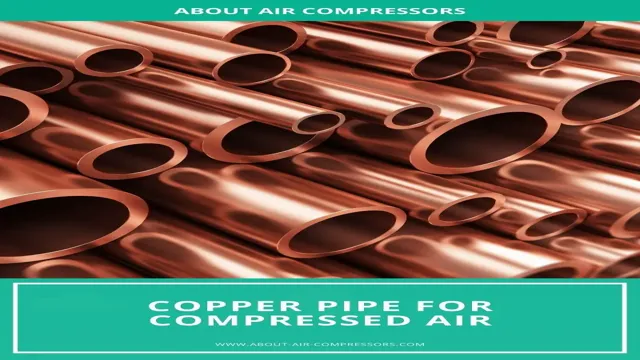
Benefits of Copper Pipes
Copper pipes are a popular choice in plumbing for many reasons. First and foremost, copper pipes are durable and long-lasting. They can withstand extreme temperatures and pressure, which makes them ideal for use in both hot and cold water systems.
Additionally, copper is highly resistant to corrosion and can withstand exposure to the elements, making it the preferred choice for outdoor plumbing systems. Copper pipes are also incredibly flexible, which allows for easy installation in a variety of spaces. This makes them a popular choice for both residential and industrial plumbing applications.
In addition to their durability and flexibility, copper pipes are also environmentally friendly. Copper is a natural resource that is easily recyclable, which makes it a sustainable choice for plumbing systems. Overall, copper pipes offer a range of benefits that make them an excellent choice for plumbing applications.
Choosing the Right Copper Pipe
If you’re looking for a durable and reliable piping material for your air compressor, you can definitely use copper pipes. Copper is a popular choice for compressed air systems as it is resistant to corrosion and can withstand high pressures. The type of copper pipe you choose will depend on the specific requirements of your system.
If you have a large compressor system with high flow rates, you may need thicker walled copper pipes. Otherwise, regular L-grade copper piping is suitable for most smaller systems. It’s important to select pipes with proper fittings and width to avoid any issues with leakage or bursting.
Overall, copper piping is a great choice for any compressed air system as it is both economic and easy to install.
Pipe Size and Pressure Ratings
When it comes to choosing the right copper pipe for your plumbing system, two important factors you need to consider are pipe size and pressure ratings. The size of the pipe determines the amount of water flow capacity, so it’s essential to choose the right size based on your needs. A larger size pipe means more water flow and less pressure drop, while a smaller size pipe means less water flow and more pressure drop.
The pressure rating of the pipe, on the other hand, indicates how much pressure it can handle before bursting. It’s crucial to choose a pipe with a pressure rating that exceeds the maximum pressure in your plumbing system to ensure safety. Therefore, before making a purchase, it’s essential to consult with a professional plumber to determine the right size and pressure rating according to your plumbing needs.
Remember, choosing the right copper pipe is critical to the success of your plumbing installation and the overall safety of your property.
Type of Pipe
When it comes to choosing the right copper pipe, there are a few things you need to keep in mind. The first thing to consider is the type of pipe you need. There are three main types of copper pipes: Type M, Type L, and Type K.
Type M pipes are the thinnest and are recommended for residential water systems where the water is fairly low in corrosives. Type L pipes, on the other hand, are thicker and are ideal for high-pressure water systems with slightly corrosive water. Finally, Type K pipes are the thickest and are used for extremely high-pressure systems and highly corrosive water.
So, depending on your specific needs, you may need to choose a certain type of copper pipe. It’s important to note that choosing the wrong type of pipe can result in burst pipes and other plumbing problems down the line, so make sure to choose carefully.
Installation and Maintenance
If you’re wondering whether you can use copper pipes for your air compressor, the answer is yes! Copper pipes offer excellent durability, and they’re less prone to leaks than other materials often used in air compressor systems. However, it’s essential to ensure you’re using the right grade of copper pipe. Be sure to select pipes specifically designed for compressed air systems to prevent any potential issues down the line.
Another critical factor to consider is maintenance. Proper maintenance is key to ensuring optimal performance, and copper pipes must be kept clean and free from corrosion to prevent damage. Regular inspections and cleaning can extend the life of your pipework and your entire compressor system.
In conclusion, copper pipes can be an excellent choice for your air compressor, but you must choose the right type and prioritize maintenance and inspections to keep your system running at its best.
Preparing the Pipes
When it comes to installing and maintaining pipes, every step is critical. Before starting the installation process, it’s essential to prepare the pipes. This includes inspecting the pipes to identify any damage, cleaning the area where they will be installed, and then cutting and fitting them properly.
Additionally, it’s crucial to ensure the pipes are of appropriate size and material, and they comply with local codes and regulations. Proper maintenance of the pipes is equally critical in ensuring they function optimally. Regular inspection, cleaning, and repairing of leaks are necessary to prevent potential damage and avoid costly repairs.
Neglecting maintenance can lead to pipe corrosion, clogs, and other issues, making it essential to check the pipes frequently. Proactive pipe maintenance can help detect problems early, saving time, money, and stress. Remember, a well-maintained pipe system can improve the quality of life and prevent health hazards like sewage backups.
So, invest in regular inspections and maintenance and keep the pipes in good working condition for years to come.
Soldering and Connecting Pipes
Soldering and connecting pipes are important aspects of plumbing installation and maintenance. Soldering involves joining two metal pipes using a metal alloy that melts and flows between the pipes to create a strong bond. This process requires a heat source, such as a torch, and a steady hand to ensure a secure connection.
On the other hand, connecting pipes involves using fittings, such as elbows, tees, and couplings, to join two or more pipes together. These fittings can either be threaded or slip-fit, and they require a sealant to prevent leaks. When it comes to maintenance, it’s essential to regularly check for leaks and repair them promptly to prevent costly damage.
It’s also important to use the correct materials for the pipes and fittings to ensure compatibility and prevent corrosion. By performing regular maintenance and using proper installation techniques, you can ensure your plumbing system runs smoothly and efficiently.
Maintenance Tips
When it comes to installing and maintaining equipment, it’s crucial to follow the manufacturer’s instructions. This will ensure that the equipment operates correctly and lasts longer. One important tip is to check and replace any worn-out parts routinely.
Ignoring wear and tear on equipment parts can lead to expensive breakdowns and possibly cause safety concerns down the line. Be sure to lubricate critical parts and clean the equipment regularly to prevent dust and dirt build-up. It is also essential to use the right tools, equipment, and accessories to avoid potential damages.
Lastly, knowing when to call in a professional for repairs is crucial. Sometimes even with proper maintenance, equipment can stop working correctly, and that requires a professional to fix it. By following these tips, you can extend the life of your equipment, improve its performance and reduce downtime.
Keyword: Installation and Maintenance
Conclusion
In conclusion, while copper pipe may be a viable option for some air compressor systems, it ultimately comes down to individual circumstances and requirements. So, before you decide to go down the copper route, it’s worth doing your research and consulting with a professional to make sure your system is safe, efficient, and durable. After all, as they say, sometimes it’s the little things that make the biggest difference – and in this case, the quality of your piping could make all the difference to the performance of your air compressor.
So, choose wisely, and happy compressing!”
FAQs
Is copper pipe suitable for air compressor installation?
Yes, copper pipe is a commonly used material for air compressor installation due to its durability and resistance to corrosion.
What is the maximum recommended pressure rating for copper piping in air compressors?
The maximum recommended pressure rating for copper piping in air compressors is typically around 250 PSI.
Are there any special considerations when using copper pipe for air compressors?
Yes, it’s important to use the appropriate sizing and thickness of copper pipe based on the air compressor’s flow and pressure requirements.
Can copper piping be used for both hot and cold compressed air systems?
Yes, copper piping can be used for both hot and cold compressed air systems as long as it’s rated for the temperature and pressure levels.
What are the advantages of using copper pipe over other materials for air compressor installation?
The advantages of using copper pipe include its high durability, easy installation, and resistance to corrosion and rust.
Are there any disadvantages to using copper pipe for air compressor installation?
The potential disadvantages of using copper pipe include its higher cost compared to other materials, and the need for proper insulation to prevent condensation and heat loss.
Can copper piping be used for larger air compressor systems or is it more suited for smaller applications?
Copper piping can be used for larger air compressor systems, but it’s important to ensure the piping is properly sized and meets the pressure and flow requirements.

